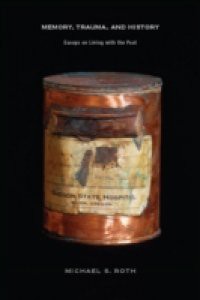Intellectual historian Michael S. Roth has spent more than two decades exploring the way we make meaning out of the past. This collection features his most influential essays, in which he uses psychoanalysis to build a richer understanding of history, and then takes a more expansive conception of history to decode the cultural construction of memory.His collection consists of five sections. The first examines the development in nineteenth-century France of professional criteria for diagnosing memory disorderscriteria that signal fundamental changes in the understanding of present and past. The second section explores links between historical consciousness and issues relating to the psyche, including trauma and repression and hypnosis and therapy. Roth next examines the work of postmodern theorists in light of the philosophy of history. Then he considers photography and its capturing of traces of the past, which propose connection while acknowledging otherness. Roth focuses on piety and how it turns us to the past, or how we strive to be faithful to the past without necessarily getting it right or using it well. Roth concludes with essays on the promises and risks of liberal education, calling for a pragmatic and reflexive approach to thinking and learning. Drawing on his vast experiences as a teacher and academic leader, Roth speaks of living with the past without being dominated by it and of remaining open to the possibility of sharing our lives with others.

